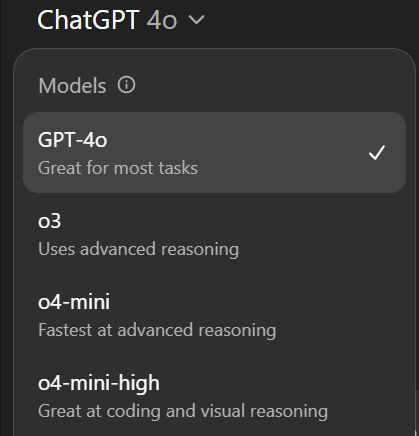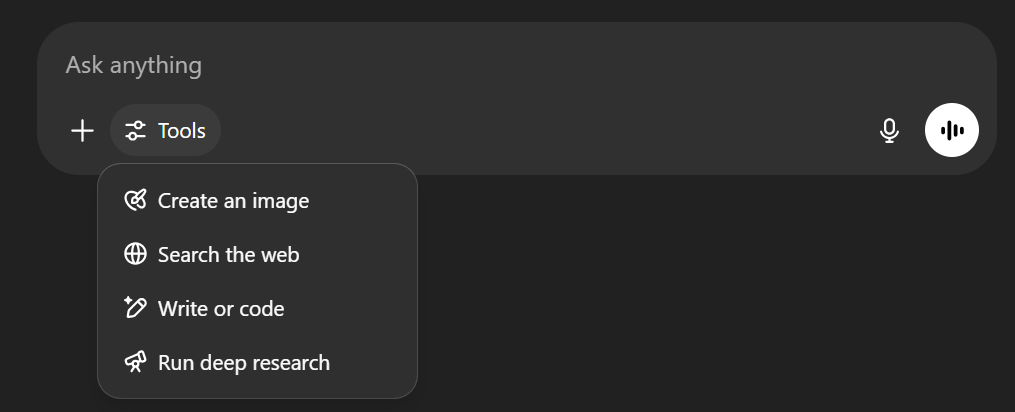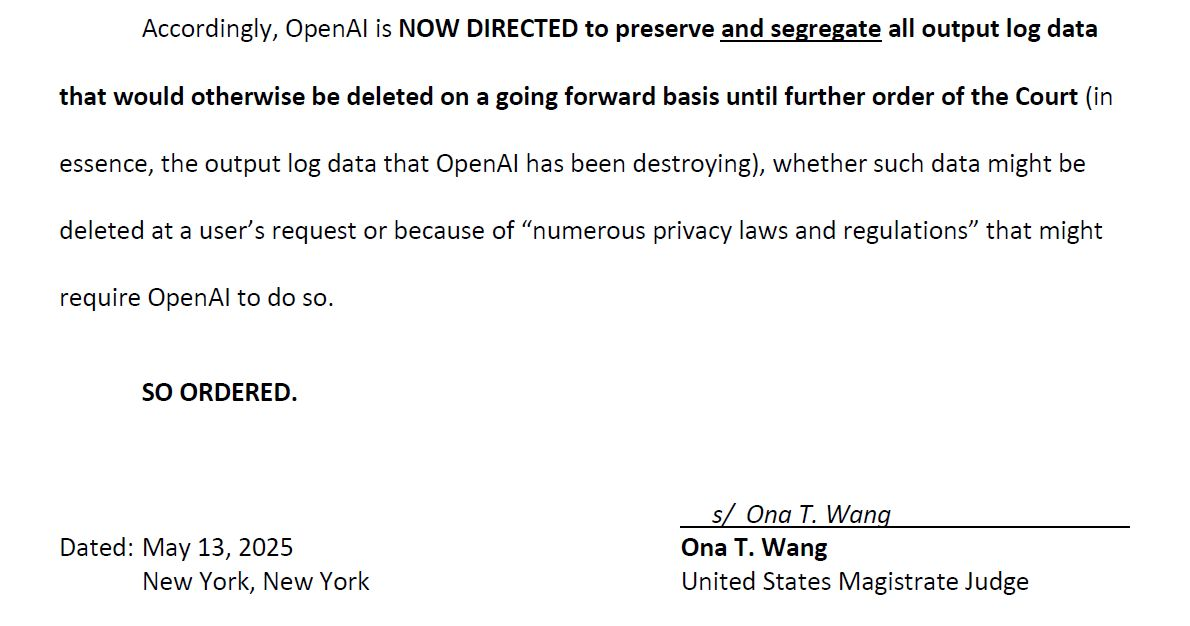Terminology


Solo attorney (MD, DC) and programmer. Founder of:
Co-founder of a one-year-old girl who's made efficient work essential
When used properly, AI has low downside and high upside as a time‑saver whose work you review
Generating new data means it can create digital anything (text, code, images, audio, video, and paired with 3D printing... physical objects)
Huge amount of data → data cleaned → “trained” on patterns → extrapolate connections → optimize and finalize the model
A genius intern is not going to replace you for years and can greatly reduce your workload in the meantime.
If you’re a small or solo outfit like me, you’re not going to spend five or six figures on bespoke, in‑house models.
Fancy “Legal AI” services have little (if any) advantage without substantial customizations and maintenance (in-house data training, custom agents, periodic on-site updates).
Instead, I spend 1.5 burritos per month to subscribe to the most powerful knowledge generators in history.
All major LLMs provide powerful free versions with different specialties, and improve rapidly.
Specialities change rapidly, but some services are purpose-built, like web search (Perplexity) and coding (Cursor, Windsurf)
Maintaining data privacy with all AI models, especially the free versions, is essential… more on this later.
Invest the most time in your initial prompt to avoid backtracking later.
Remember, AI’s output is “probabilistic” — you’ll get different outputs for the same input (restaurant, not a vending machine).
Don’t be afraid to ask the exact same thing multiple times or to multiple models—or ask them to critique each other!
Context can also include your own writing, so the output is tailored to your style.
You can use XML tags to guide the model and more effectively structure the output. For example:
<role>
You are an expert _______.
</role>
<task>
Create ________.
</task>
<instructions>
1. Read the attached context file and this prompt in their entirety, and ask any clarifying questions before responding.
2. ______
3. Ensure any research you perform is cited.
</instructions>
<context>
Attached is _______.
</context>
Less emphasis on the instructions, more on the role, context, and task.
This allows the model to be more creative and flexible, making it more helpful (especially as a mocked counterparty):
overly precise instructions can make it predictable and similar to your own thinking.
It may feel ridiculous, but try other human aspects that would affect the way you respond to a situation
Note the clarification requests.
Example categories can be overlapped (issue-spot areas of legal liability, then propose ___ ... analyze this, then generate a form ___).
If you want to mimic or follow the style or voice in your prompt (such as attaching one of your own writings), tell the model!
Don't stress the formatting— models usually use markdown that doesn't always translate well to your word processor.
Substantive but subjective prompts like these are even more effective with “reasoning” or "thinking" models.
Always assume the worst.
These are big tech companies with unprecedented compute power, and there’s a reason they offer free versions:

Here’s a tool I built to more efficiently protect sensitive text
Tell them the truth: you're using AI to be more efficient, without compromising your judgment, ethics, or privacy obligations.
If they’re using AI services, remind them of the severe hallucination and privacy issues.

... this is an actual response I received from ChatGPT in 2024.
If they're using them for legal-ish work, suggest using for general purposes, like honing questions and requests for you.
Win‑win: efficient intake, and clients appreciate attempts to reduce the bill (and empower them to learn about the matter)
Share the best practices with them!
An unbelievable amount of intellectual power, with near-instant response time, and reasoning + research capabilities, for comically cheap subscriptions.
You’re not getting replaced by AI anytime soon—you’re getting superpowered.
More actual legal work rather than repetitive keyboard mashing.
However, you might get outpaced by others using this technology if you don’t!
Low downside (takes seconds and you're reviewing the output anyway) and extremely high upside.
Also, it’s fun.
Talk to it like an interactive academic course or a podcast, learn a new skill or language with an infinitely patient and personalized assistant, have it create an outline for a presentation...
Websites, Profiles, and Emails:
Other AI services mentioned: ChatGPT • Perplexity • Claude • Gemini • Grok